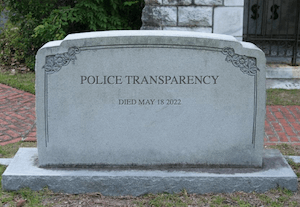SCRANTON, LACKAWANNA COUNTY (WBRE/WYOU) — The third annual Medical Advocacy Conference kicked off Wednesday at Marywood University. This year's theme was all about practice, partnerships, and prevention, with a focus on strengthening the intersection between medical care and support for survivors of a variety of issues.
Healthcare professionals gathered Wednesday to tackle complex issues affecting survivors across the community. Discussions ranged from dealing with substance use in domestic violence situations to understanding the needs of male survivors who are often left unheard.
"We came up with the idea for the conference because of the providers we were talking to and them wanting this cause there wasn't anything in the area, and domestic violence, sexual assault, human trafficking, and stalking are all things that are happening in our community, and there's just not a lot of information around it," Sabrina Hannon, program coordinator at the Womens's Resource Center explained.
Beyond the discussions, the goal is to empower these professionals to take the knowledge back to their practices, with a strong emphasis on understanding and empathy.
"We are trying to make sure that folks know that the resources are out there and to normalize coming and asking the tough questions and to feel comfortable with health care providers," said Hannon.
PA state parks see uptick in reservations
"People will say they're going to go ahead and take it back to work, discuss change with colleagues, possibly implement a change, so those are one of the things we actually measure and then follow up on after the fact," explained Ericka Thaxon, medical advocate for the Victims Intervention Program.
For attendees like Ashley O'Hare, the conference is a vital tool for enhancing the care she provides.
"This topic is something that I do experience in my work setting, and I feel I should be at the top of my field with what's going on, what's available, and, so I can give the best care I'm capable of to my patients," O'Hare said.
O'Hare says the session on substance abuse gave her new insight into the reasons survivors may turn to substance abuse.
"This is the crutch this is the band-aid so, when confronting victims who utilize this type of substance for their trauma, as kind of a crutch, it's important to remember that this is someone that had something happen to them that this was the alternative, this looked like the better option for them," explained O'Hare.
This conference not only provides insights but also builds a community for those dedicated to advocacy.
"It's a community, it's a network of so many different professionals, all united for this one shared goal, you know, to bring voices to those that are silenced and help bridge those gaps between healthcare and survivors," said Thaxon.
Organizers hope these teachings will revolutionize the way healthcare professionals across the region approach and support survivors of abuse and violence.
